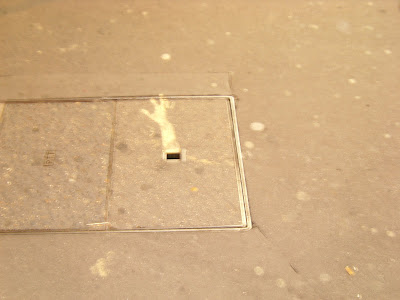Zen and the Art History of Motorcycles
An Inquiry into Aesthetics
This should in no way be associated with that great body of work relating to hippy nonsense and first year philosophy. It's not very factual on motorcycles or art history, either.
It's muggy even this early in the morning as we turn on to the gravel, and I check the engine temperature with my hand. It's reassuringly cool.
It reminds me of the coolness of the caves at Altimera, which interested him so much back then. He worried too much about that, it later turned out. Whether the beauty the cavemen had been chasing – and which I guess the Sutherlands were chasing too – counted as art, or what passed for art.
The road has twisted now as it moves up through the pines and the engine threatens to cut out from the lack of oxygen. I turn back and swat Chris's knee.
"What?" he hollers.
"Just checking," I say.
Native American art bears a good many resemblances to the Aborigine work in Australia, in that it was done by people that we're used to thinking of as primitive. That's why they call it primitive art. But I wonder about that, as he wondered about that. Too much, as it transpired later. But I wonder if those so-called primitives weren't on to something. Phaedrus thought they were on to something, certainly. And in thinking that, he thought that he was on to something, too. I don't know now whether he was right.
I'm on something now, though. It's a Chautauqua Flying Bullet 450cc, though I've shimmed the plugs and it sounds now like John's much more expensive BMW 750.
Geertgens tot Sint Jants's pictures look kind of primitive to us now. But that's just our perspective. Or at least, that was Phaedrus's perspective on our perspective. But Geertgens's perspective was actually kind of sophisticated for his day and all, when you come to think about it.
John's horrified to discover I've been using these shims I cut from a beer can on his expensive motorcycle.
"You used what?" he hollered.
His shims are straight from the BMW factory shop and cost like $60 each.
That's the problem with factories, as so many of the Old Masters discovered. You look at a picture by Hams Memling, say, and there it is. A Hans Memling. But what if it's just from Hans Memling's factory, or studio, to use the technical term Phaedrus had discovered in his intensive studies. I can remember nothing about those studies, but he knew all about them. Too much, it was to turn out. Then it's not a Hans Memling. It's just school of Hans Memling. But it's the same picture. That's the trouble with schools.
Chris is having trouble at school. I can identify with that. So could he, of course, back then. I can't identify with him, though. Not any more.
"Look," I holler at Chris. You do a lot of hollering on a motorcycle, especially when the tappets are shot. "A magpie!"
"You're tragic, pop." he yells.
I guess birds aren't that big a deal to Chris.
Birds were a big deal for Hokusai. But the art of the East gave Phaedrus a whole new perspective on painting. Were they on to something?
Chris watches as I fill the tank. The smell of petrol drifts into the odour of the pine trees and sap, mingling like the paint on Leonardo's canvases. Relationships are kind of difficult, I guess. But families are important.
The Bellinis were a family. A family of painters, Phaedrus would have called them. They came from Venice. There were three of them. All painters. Charles Ryder didn't know that in Brideshead Revisited. But Lord Marchmain did. That's what living in a place will teach you.
"Are we going to live here, pop?" Chris asks.
"No, son," I reassure him. "We're just filling up. It's a gas station. They sell gas here."
"I meant get a move on," says Chris. "Honestly, you are so tragic. Have you no sense of irony, pop?"
The opposite of irony is common sense, wrote Richard Rorty. Phaedrus would have known about him. He taught at a university. But what is a university, really, when it comes down to it? Why can't it just be a motorcycle?
I think the opposite of irony is anaemic. But who's to say who's right?
The engine mumbles a little as we climb into Montana. I hear Chris's voice behind me mumbling with it.
"You are so, so tragic, pop."
Andy Warhol was a Pop artist. He had a factory. Phaedrus only had a faculty. And when he started banging on about Mark Rothko, they kicked him off even that. But I was a different guy then, though the headaches aren't so bad now.
This is getting us nowhere. But we're eating up the miles.
I think I'll get a boat next.







